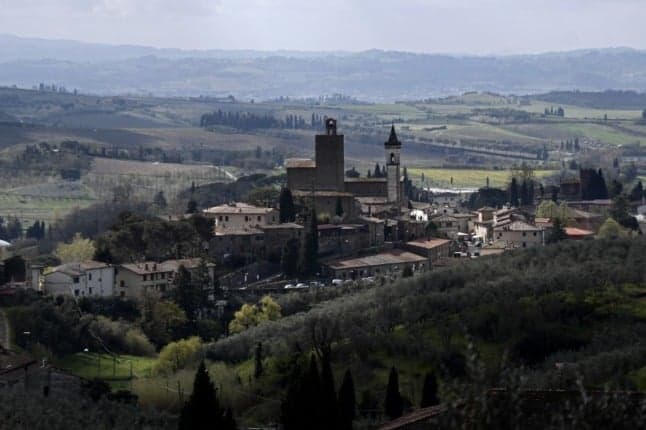Italian researchers discover 14 descendants of Leonardo Da Vinci living in Tuscany

Historians are searching for relatives of the Italian Renaissance artist as a study of his genealogy aims to ‘better understand his genius’.
The researchers behind the project, which has spanned several decades, say they have so far found 14 living relatives aged one and 85.
All of them live in the region of Tuscany, where the painter, scientist, engineer and architect was born in 1452.
READ ALSO: Eight things you might not know about Leonardo Da Vinci
The findings form part of a decades-long project, led by art historians Alessandro Vezzosi and Agnese Sabato.
The study’s findings, published in the Human Evolution journal, document the male line over the past 690 years, through 21 generations.
Though Da Vinci never married and had no children, he had at least 22 half-brothers, according to researchers.
Born in the Tuscan town of Vinci, he was the illegitimate son of a local notary.
READ ALSO: Vinci, the Tuscan paradise where Leonardo's genius bloomed
Vezzosi told the Ansa news agency that by 2016 "we had already identified 35 of Leonardo's living relatives, but they were mostly indirect, in the female line, as in the best-known case of the director Franco Zeffirelli."
"So they were not people who could give us useful information on Leonardo's DNA and in particular on the Y chromosome, which is transmitted to male descendants and remains almost unchanged for 25 generations".
He said the 14 living descendants identified in the study, through painstaking research over the decades, were from the male line.
READ ALSO: Da Vinci’s ‘claw hand’ left him unable to hold palette: researchers
"They are aged between one and 85, they don't live right in Vinci but in neighbouring towns as far away as Versilia (on the Tuscan coast) and they have ordinary jobs such as a clerk, a surveyor, an artisan," Vezzosi said.
The relatives’ DNA samples will be analysed in the coming months by the international Leonardo Da Vinci DNA Project, led by the Jesse Ausubelof Rockefeller University in New York and supported by the Richard Lounsbery Foundation.
Comments (1)
See Also
The researchers behind the project, which has spanned several decades, say they have so far found 14 living relatives aged one and 85.
All of them live in the region of Tuscany, where the painter, scientist, engineer and architect was born in 1452.
READ ALSO: Eight things you might not know about Leonardo Da Vinci
The findings form part of a decades-long project, led by art historians Alessandro Vezzosi and Agnese Sabato.
The study’s findings, published in the Human Evolution journal, document the male line over the past 690 years, through 21 generations.
Though Da Vinci never married and had no children, he had at least 22 half-brothers, according to researchers.
Born in the Tuscan town of Vinci, he was the illegitimate son of a local notary.
READ ALSO: Vinci, the Tuscan paradise where Leonardo's genius bloomed
Vezzosi told the Ansa news agency that by 2016 "we had already identified 35 of Leonardo's living relatives, but they were mostly indirect, in the female line, as in the best-known case of the director Franco Zeffirelli."
"So they were not people who could give us useful information on Leonardo's DNA and in particular on the Y chromosome, which is transmitted to male descendants and remains almost unchanged for 25 generations".
He said the 14 living descendants identified in the study, through painstaking research over the decades, were from the male line.
READ ALSO: Da Vinci’s ‘claw hand’ left him unable to hold palette: researchers
"They are aged between one and 85, they don't live right in Vinci but in neighbouring towns as far away as Versilia (on the Tuscan coast) and they have ordinary jobs such as a clerk, a surveyor, an artisan," Vezzosi said.
The relatives’ DNA samples will be analysed in the coming months by the international Leonardo Da Vinci DNA Project, led by the Jesse Ausubelof Rockefeller University in New York and supported by the Richard Lounsbery Foundation.
Join the conversation in our comments section below. Share your own views and experience and if you have a question or suggestion for our journalists then email us at [email protected].
Please keep comments civil, constructive and on topic – and make sure to read our terms of use before getting involved.
Please log in here to leave a comment.